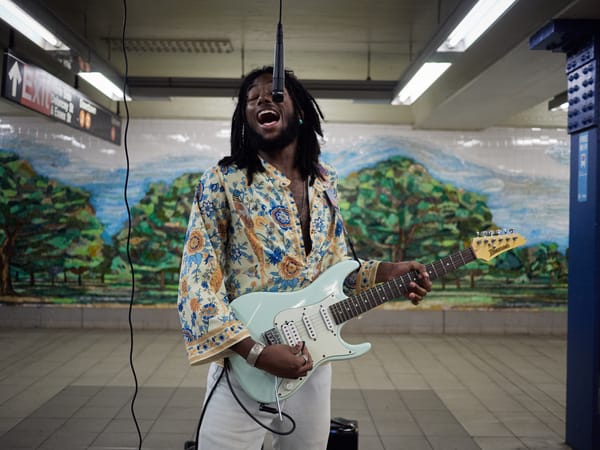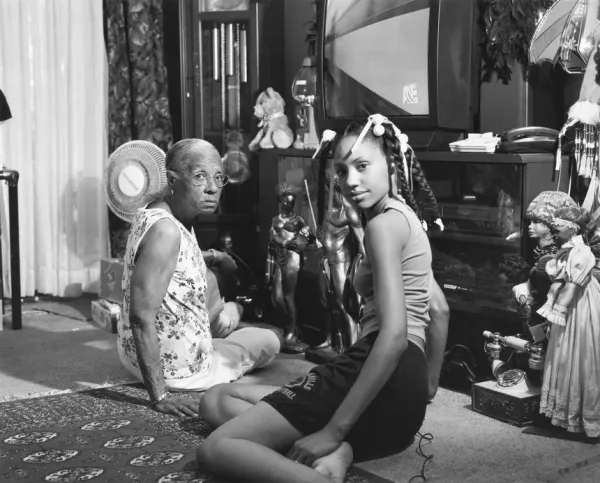What It Means to Be an Ally

Through the Lens of Our Work
The word “ally” is everywhere. It appears in statements, hashtags, captions, and campaigns. But what does it really mean to be an ally? What does it look like in practice? And how do we know when we’re doing it well?
At theBLKGZE, we explore these questions through the lens of our work — photography, documentary, storytelling, research, and cultural expression rooted in the Black experience. Every project we create is a call to listen more closely, to look more clearly, and to stand more intentionally.
This post offers a reflection on allyship from our point of view. It’s not a checklist or a final answer. It’s an invitation. If you’re a non-Black ally asking how to show up with more care, more courage, and more consistency, you’re in the right place.
The Core of Allyship: Choosing to Act
At its root, allyship is not an identity. It is a practice. It’s something you do, not something you claim. An ally uses their position, privilege, or platform to support others, especially those whose voices have been marginalised or ignored.
This support is not performative or symbolic. It is intentional, specific, and rooted in relationship. And it requires ongoing self-reflection and learning.
Allyship, as we’ve come to understand it through our work, is about showing up consistently, not just when it’s popular, not just when it’s convenient, and not just when you’re thanked for it.
Seeing What’s Missing
Much of theBLKGZE’s work begins with a question: What stories are not being told? Whose voices are being left out?
We’ve found that allyship starts in the same place. It starts with noticing who is missing from the room, the archive, the board, or the conversation. And then asking: What role have I played in that silence? What might I do to make space for something fuller and more honest?
In this way, allyship is tied to vision. It’s the ability to see injustice, even when it’s subtle. It’s the willingness to see your own blind spots, not with shame, but with humility.
Listening Is Not Passive
Many non-Black allies want to help but are unsure where to begin. We always recommend starting with listening. Not the kind of listening where you wait your turn to talk, but the kind where you take a step back, open your posture, and let Black voices take the lead.
In our work, listening shows up in how we interview, how we document, and how we respond to feedback from the communities we serve. We aim to make work with, not about. That same shift can guide allyship, away from speaking over or rescuing, and toward building trust through presence.
Allyship in Everyday Practice: 6 Principles We’ve Learned
From our creative process to our collaborations, we’ve seen what thoughtful allyship can look like. Here are six key ideas drawn directly from the way we work.
1. Respect the Truth of the Lived Experience
Not all truths are comfortable. When we centre Black stories, we centre realities that challenge dominant narratives. This may include pain, complexity, and contradiction.
Being an ally means respecting that lived experience, even when it disrupts your assumptions. It means holding space for someone else’s truth without rushing to fix, question, or minimise it.
In our work, that means giving people full control over their voice and image. For allies, it might mean resisting the urge to debate or dilute someone’s experience. Instead, just listen. Let the truth be what it is.
2. Use What You Have to Support What You Don’t
At theBLKGZE, we often work with limited resources. That’s the reality for many Black-led projects. But we’ve also seen the difference that collaboration can make when allies bring their resources to the table, not to lead, but to support.
You might have access to funding, networks, skills, or platforms. Consider how you can use what you have to amplify the work of those who don’t have the same access. Ask what’s needed before offering solutions. Let generosity flow from respect, not guilt.
3. Step Forward and Also Step Aside
There are times to speak up, and times to make space. Effective allyship requires knowing the difference.
In our creative work, this balance is constant. We amplify voices, but we don’t overwrite them. We highlight stories, but we don’t take ownership of them.
If you’re an ally, consider where you might need to step forward, maybe to interrupt racism in a meeting or to advocate for change in your institution. But also consider where you might need to step aside, to defer to someone with lived experience or to support from behind the scenes.
Both roles matter. Knowing which one to take is part of the practice.
4. Learn Without Expecting to Be Taught
Our audience often asks how they can learn more. We love that curiosity. But it’s important to remember that Black people are not responsible for educating you.
At theBLKGZE, we choose to share what we know. But we also encourage people to seek out knowledge independently. There are books, podcasts, films, essays, and exhibitions that can deepen your understanding.
If you want to be an ally, be proactive about your learning. Pay Black educators and artists for their work. Don’t expect free labour. Honour the time and energy that goes into creating resources for others to grow.
5. Stay Present When the Spotlight Fades
It’s easy to be vocal during a moment of national crisis. It’s harder to stay engaged when the moment passes and the world moves on.
At theBLKGZE, we are committed to long-term storytelling, not just viral content. We know that meaningful change takes time.
The same goes for allyship. Don’t disappear once the trend dies down. Stay curious, stay connected, and stay in the work even when it’s quiet.
6. Let Your Allyship Be Rooted in Relationship
At the heart of all our work is relationship, to community, to history, to the people we photograph and document.
Allyship that isn’t rooted in relationship can feel shallow or performative. It can become more about being seen as good than doing what is good.
Take the time to build real connections. That might mean showing up repeatedly, offering support behind the scenes, or simply being someone who listens and learns with consistency.
What We Ask of Allies Who Follow Our Work
If you are engaging with theBLKGZE as a non-Black ally, we welcome you. We need co-travellers who are willing to grow, give, and show up.
Here are some ways you can support our mission with integrity:
- Read our articles and reflect before responding
- Share our work, but also direct people to the original creators
- Support our artists and contributors financially when possible
- Follow Black voices beyond theBLKGZE, diversify your timeline and bookshelf
- Let our work influence your decisions offline, in how you vote, hire, teach, parent, or lead
We don’t need saviours. We need people who are committed to equity and truth. If that’s you, thank you for walking with us.
Final Thoughts: Allyship Is a Long Walk, Not a Short Statement
To be an ally is not to arrive. It is to continue. It is to keep asking questions, keep listening, and keep acting with care.
At theBLKGZE, we believe that art, truth, and culture can shift consciousness. We believe that change starts with seeing, and that once you see clearly, you can no longer look away.
So what does it mean to be an ally?
It means being willing to see.
It means choosing to stand up when it’s easier to stay quiet.
It means offering support without taking over.
And it means walking this road without needing to be congratulated for the journey.
If you are here, if you are still reading, that tells us something about your heart. Let it guide your next step.
Share on social
If this story sparked something in you, share it. Our voices are powerful, and when we lift each other up, we all see a little clearer.





